MEXICO CITY (AP) — A report released by the Mexican government Friday says the country is facing a dire shortage of fentanyl for medical use, even as Mexican cartels pump out tons of the illicit narcotic.
The paradox was reported in a study by Mexico’s National Commission on Mental Health and Addictions. The study did not give a reason for the shortage of the synthetic opioid, which is needed for anesthesia in hospitals, but claimed it was a worldwide problem.
The commission said fentanyl had to be imported, and that imports fell by more than 50% between 2022 and 2023.
Nonetheless, Mexican cartels appear to be having no problem importing tons of precursor chemicals and making their own fentanyl, which they smuggle into the United States. The report says Mexican seizures of illicit fentanyl rose 1.24 tons in 2020 to 1.85 tons in 2023.
Some of that is now spilling back across the border, with an increase in illicit fentanyl addiction reported in some Mexican border regions — a problem Mexico paradoxically blamed on the United States.
“Despite the limitations of availability in pharmaceutical fentanyl in our country, the excessive use of opiates in recent decades in the United States has had important repercussions on consumption and supply in Mexico,” the report states.
The report said that requests for addiction treatment in Mexico increased from 72 cases in 2020, to 430 cases in 2023. That sounds like a tiny number compared to the estimated 70,000 annual overdose deaths in the United States in recent years related to synthetic opioids. But in fact, the Mexican government does very little to offer addiction treatment, so the numbers probably don't reflect the real scope of the problem.
The shortage of medical anesthetic drugs has caused some real problems in Mexico.
Local problems with the availability of morphine and fentanyl have led anesthesiologists to acquire their own supplies, carry the vials around with them, and administer multiple doses from a single vial to conserve their supply.
In 2022, anesthetics contaminated by those practices caused a meningitis outbreak in the northern state of Durango that killed about three dozen people, many of whom were pregnant women given epidurals. Several Americans died because of a similar outbreak after having surgery at clinics in the Mexican border city of Matamoros in 2023.
The response by the administration of President Andrés Manuel López Obrador to those twin problems — not enough legal fentanyl, and too much of the illicit stuff — has been contradictory.
In 2023, López Obrador briefly proposed banning fentanyl even for medical use, but has not mentioned that idea lately after it drew a wave of criticism from doctors.
Meanwhile, the president has steadfastly denied that Mexican cartels produce the drug, despite overwhelming evidence that they import precursor chemicals from Asia and carry out the chemical processes to make fentanyl. López Obrador claims they only press the drug into pill form.
According to the U.S. Department of State’s 2023 International Narcotics Control Strategy Report, “approximately 96 percent of all fentanyl seized by CBP originated in Mexico, with only 270 kg reaching the United States from other destinations.”
Follow AP’s coverage of Latin America and the Caribbean at https://apnews.com/hub/latin-america

Workers unpack medicine at a "mega-pharmacy" warehouse on its inauguration day in Huehuetoca, Mexico, Dec. 29, 2023. A new report released by the Mexican government Friday, April 12, 2024, says the country is facing a dire shortage of fentanyl for medical use, even as Mexican cartels pump out tons of the illicit narcotic. (AP Photo/Fernando Llano, File)
PHOENIX (AP) — Democratic Arizona Gov. Katie Hobbs has relegated a Civil War-era ban on most abortions to the past by signing a repeal bill Thursday.
Hobbs says the move is just the beginning of a fight to protect reproductive health care in Arizona. But the repeal may not take effect until 90 days after the end of the legislative session, in June or July. Abortion rights advocates hope a court will step in to prevent that outcome.
The effort to repeal the long-dormant law, which bans all abortions except those done to save a patient’s life, won final legislative approval Wednesday in a 16-14 vote of the Senate, as two GOP lawmakers joined with Democrats.
Hobbs denounced “a ban that was passed by 27 men before Arizona was even a state, at a time when America was at war over the right to own slaves, a time before women could even vote."
“This ban needs to be repealed, I said it in 2022 when Roe was overturned, and I said it again and again as governor,” Hobbs said.
The vote extended for hours as senators described their motivations in personal, emotional and even biblical terms — including graphic descriptions of abortion procedures and amplified audio recordings of a fetal heartbeat, along with warnings against the dangers of “legislating religious beliefs.”
At the same time Wednesday, supporters of a South Dakota abortion rights initiative submitted far more signatures than required to make the ballot this fall, while in Florida a ban took effect against most abortions after six weeks of pregnancy, before many people even know they are pregnant.
Democratic Arizona Attorney General Kris Mayes, an opponent of the near-total abortion ban, has said the earliest the dormant abortion-ban law could be enforced is June 27, though she has asked the state’s highest court to block enforcement until sometime in late July. But the anti-abortion group defending the ban, Alliance Defending Freedom, maintains county prosecutors can begin enforcing it once the Supreme Court’s decision becomes final, which hasn’t yet occurred.
The near-total ban provides no exceptions for survivors of rape or incest. In a ruling last month, the Arizona Supreme Court suggested doctors could be prosecuted under the law first approved in 1864, which carries a sentence of two to five years in prison for anyone who assists in an abortion.
A repeal means that a 2022 statute banning the procedure after 15 weeks of pregnancy would become Arizona’s prevailing abortion law.
A crowd of lawmakers — mostly women — joined the governor at the signing ceremony. Some were gripped by emotion as they cheered the repeal and said more is needed to protect rights to reproductive health care.
Former Democratic state Rep. Athena Salman celebrated approval of the repeal she initially proposed in 2019.
Salman, who resigned in January to lead an abortion rights group, said she can’t stop thinking about her daughters. “Future generations will not have to live under the restrictions and the interference that we have had to experience,” she said.
Arizona Rep. Stephanie Stahl Hamilton, a Democrat who has been key in the fight to repeal the territorial abortion ban, said she spent her early years on the Navajo Nation where her parents were schoolteachers and saw firsthand people being denied their reproductive rights.
She also watched her sister-in-law struggle with two difficult pregnancies that resulted in stillbirths.
“My daughter, who is 17 years old, should this law go in effect would have less reproductive freedoms than her great-grandmother in 1940 and Texas, who had to have an abortion,” Stahl Hamilton said. “We have people who need reproductive care now.”
President Joe Biden’s campaign team believes anger over the fall of Roe v. Wade gives them a political advantage in battleground states like Arizona, while the issue has divided Republican leaders.
Abortion-ban advocates in the Senate on Wednesday gallery jeered and interrupted state Republican state Sen. Shawnna Bolick as she explained her vote in favor of repeal, joining with Democrats. Bolick is married to state Supreme Court Justice Clint Bolick, who voted in April to allow a 1864 law on abortion to be enforced again. He confronts a retention election in November.
The 19th century law had been blocked since the U.S. Supreme Court’s 1973 Roe v. Wade decision guaranteed the constitutional right to an abortion nationwide.
After Roe v. Wade was overturned in June 2022, then-Arizona Attorney General Mark Brnovich, a Republican, persuaded a state judge that the 1864 ban could be enforced. Still, the law hasn’t actually been enforced while the case was making its way through the courts.
Planned Parenthood Arizona filed a motion Wednesday afternoon that asks the state Supreme Court to prevent a pause in abortion services until the Legislature’s repeal takes effect.
Advocates are collecting signatures for a ballot measure allowing abortions until a fetus could survive outside the womb, typically around 24 weeks, with exceptions — to save the parent’s life, or to protect her physical or mental health.
Republican lawmakers, in turn, are considering putting one or more competing abortion proposals on the November ballot.
Dr. Ronald Yunis, a Phoenix-based obstetrician-gynecologist who also provides abortions, called the repeal a positive development for patients who might otherwise leave Arizona for medical care.
“This is good for ensuring that women won’t have to travel to other states just to get the health care they need,” Yunis said. “I was not too concerned because I have a lot of confidence in our governor and attorney general. I’m certain they will continue finding ways to protect women.”
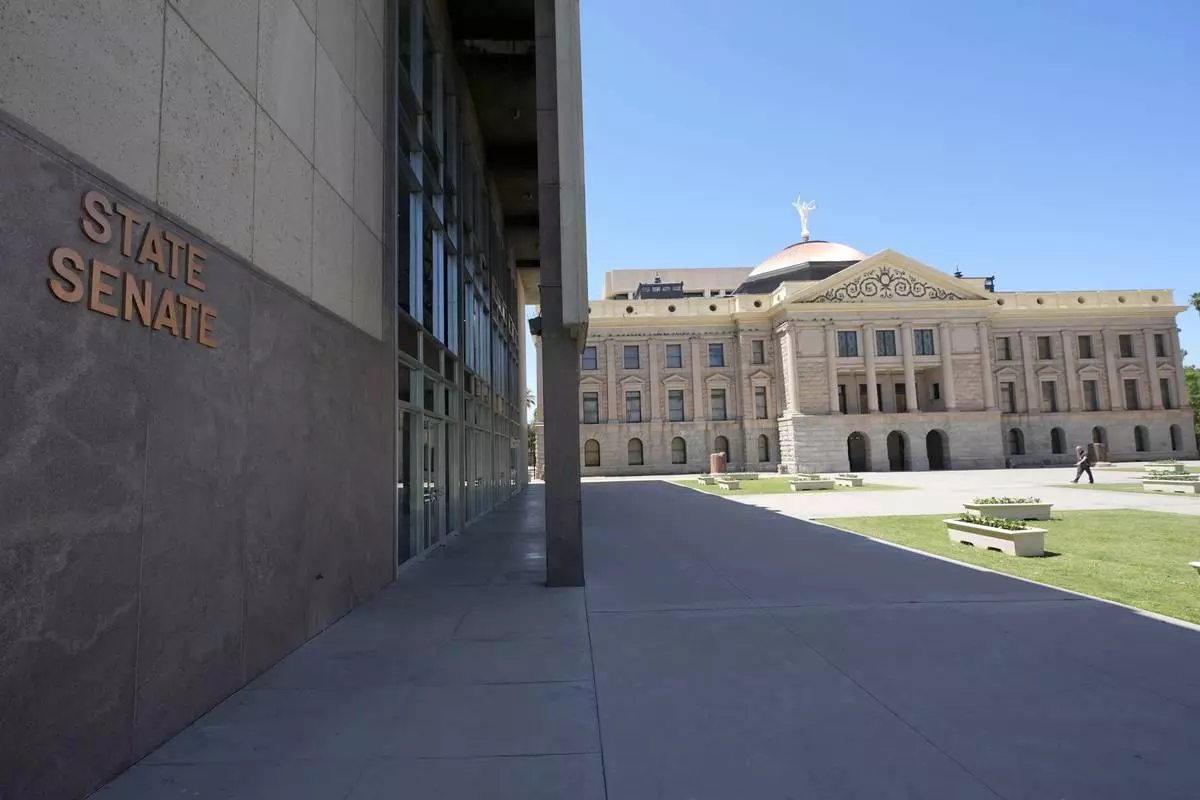
FILE - The Arizona Senate building at the state Capitol stands, April 11, 2024, in Phoenix. Democrats at the Arizona Legislature are expected to make a final push Wednesday, May 1, to repeal the state’s long-dormant ban on nearly all abortions that a court said can be enforced. (AP Photo/Ross D. Franklin, File)
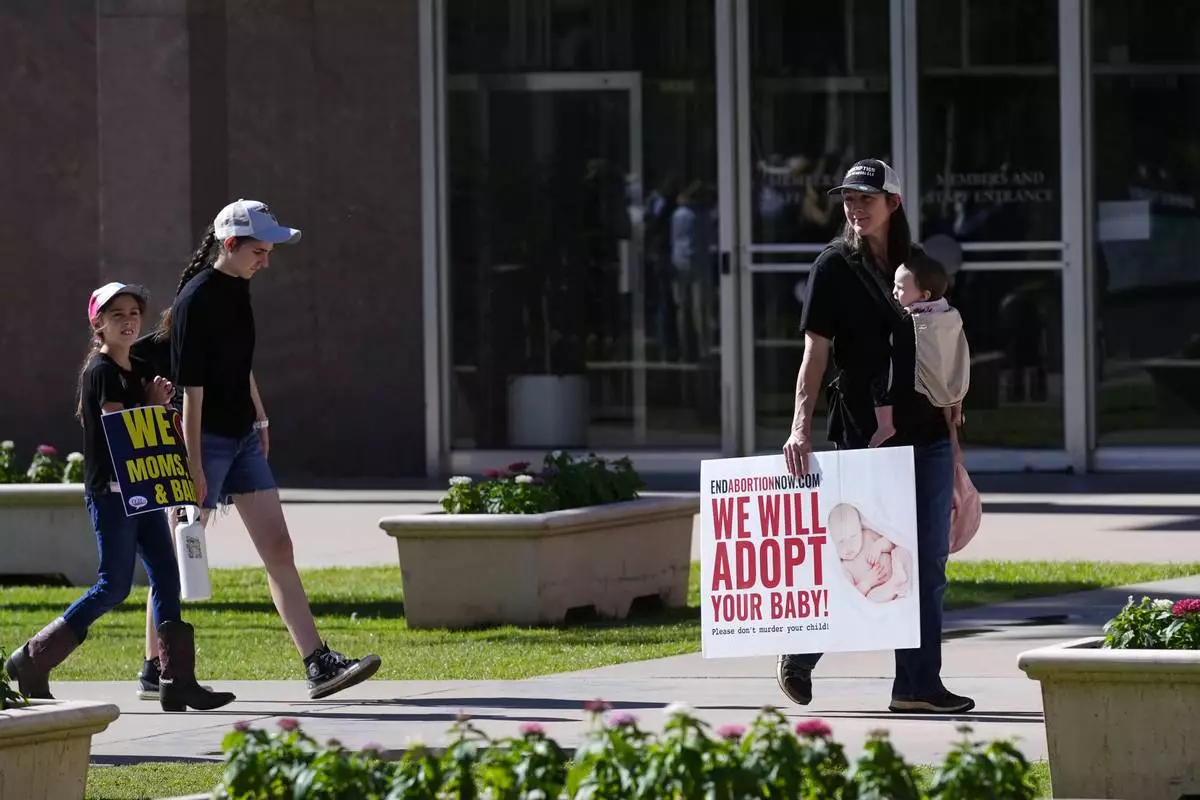
FILE - Pro-life demonstrators walk in the front of the Arizona Capitol prior to the vote on the proposed repeal of the state's near-total ban on abortions prior to winning approval from the state House on, April 24, 2024, in Phoenix. Democrats at the Arizona Legislature are expected to make a final push Wednesday, May 1, to repeal the state’s long-dormant ban on nearly all abortions that a court said can be enforced. (AP Photo/Ross D. Franklin, File)
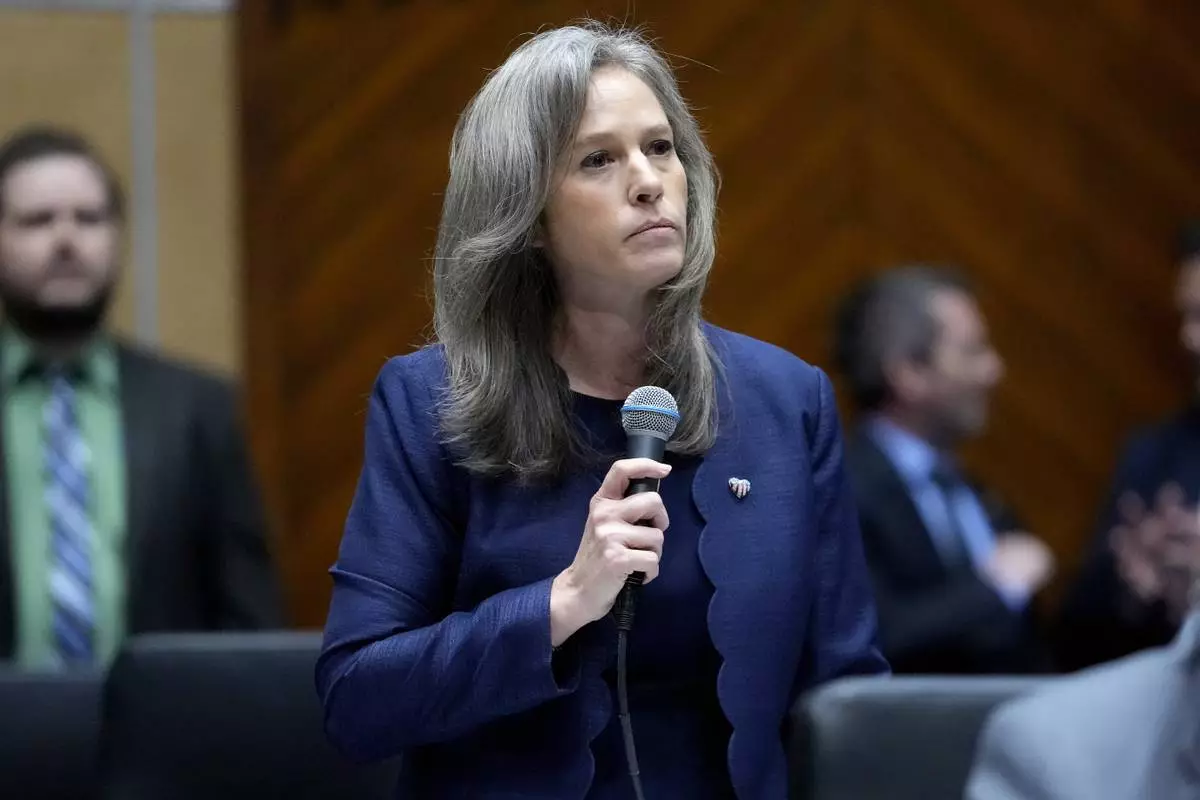
Arizona state senator Shawnna Bolick, R-District 2, speaks, Wednesday, May 1, 2024, at the Capitol in Phoenix. (AP Photo/Matt York)

Anti-abortion supporters stand outside the Capitol, Wednesday, May 1, 2024, in Phoenix. (AP Photo/Matt York)

Democratic Arizona state senator Anna Hernandez, D-District 24, left, hugs a colleague after a their vote, Wednesday, May 1, 2024, at the Capitol in Phoenix. Democrats secured enough votes in the Arizona Senate to repeal a Civil War-era ban on abortions that the state's highest court recently allowed to take effect. (AP Photo/Matt York)

Arizona state senator Jake Hoffman, R-District 15, speaks Wednesday, May 1, 2024, at the Capitol in Phoenix. Democrats secured enough votes in the Arizona Senate to repeal a Civil War-era ban on abortions that the state's highest court recently allowed to take effect. (AP Photo/Matt York)

Democratic Arizona state senators hug after a their vote, Wednesday, May 1, 2024, at the Capitol in Phoenix. (AP Photo/Matt York)
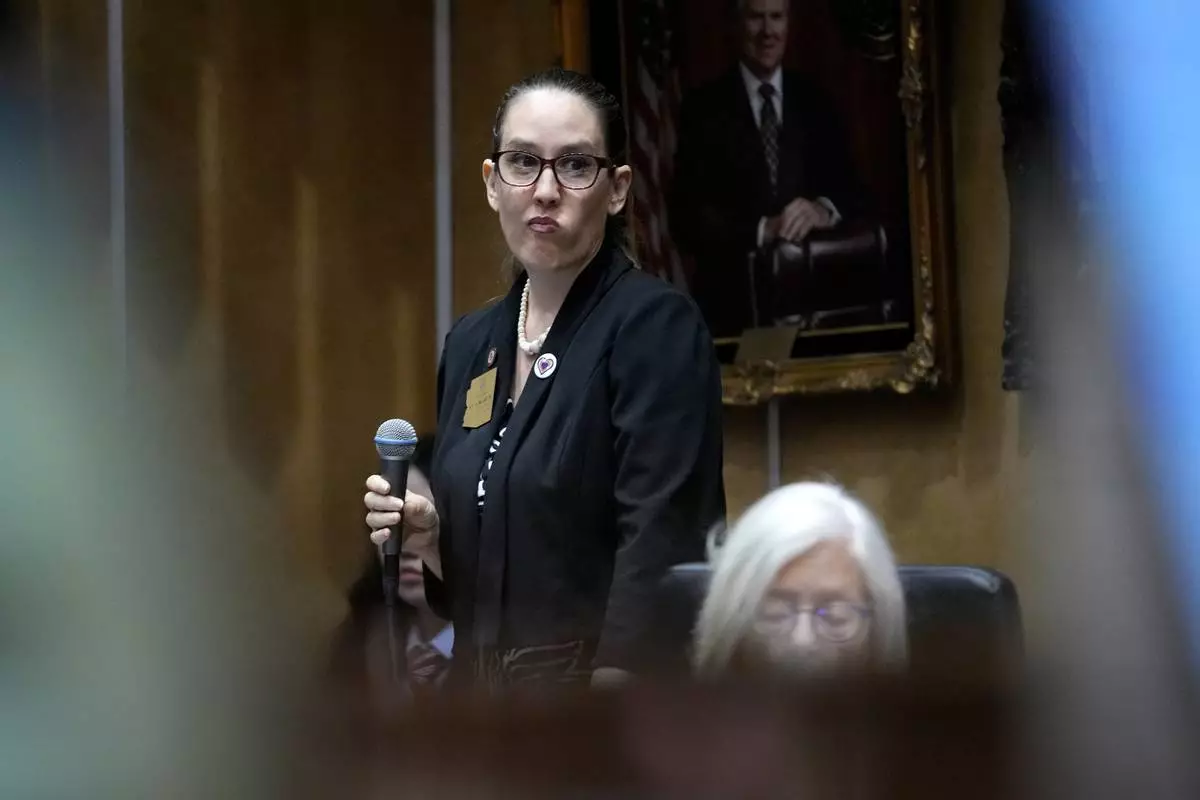
Arizona state senator Eva Burch, D-District 9, looks on, Wednesday, May 1, 2024, at the Capitol in Phoenix. (AP Photo/Matt York)

Arizona state senator J. D. Mesnard, R-District 13, plays audio of a heart beat from his cell phone, Wednesday, May 1, 2024, at the Capitol in Phoenix. (AP Photo/Matt York)
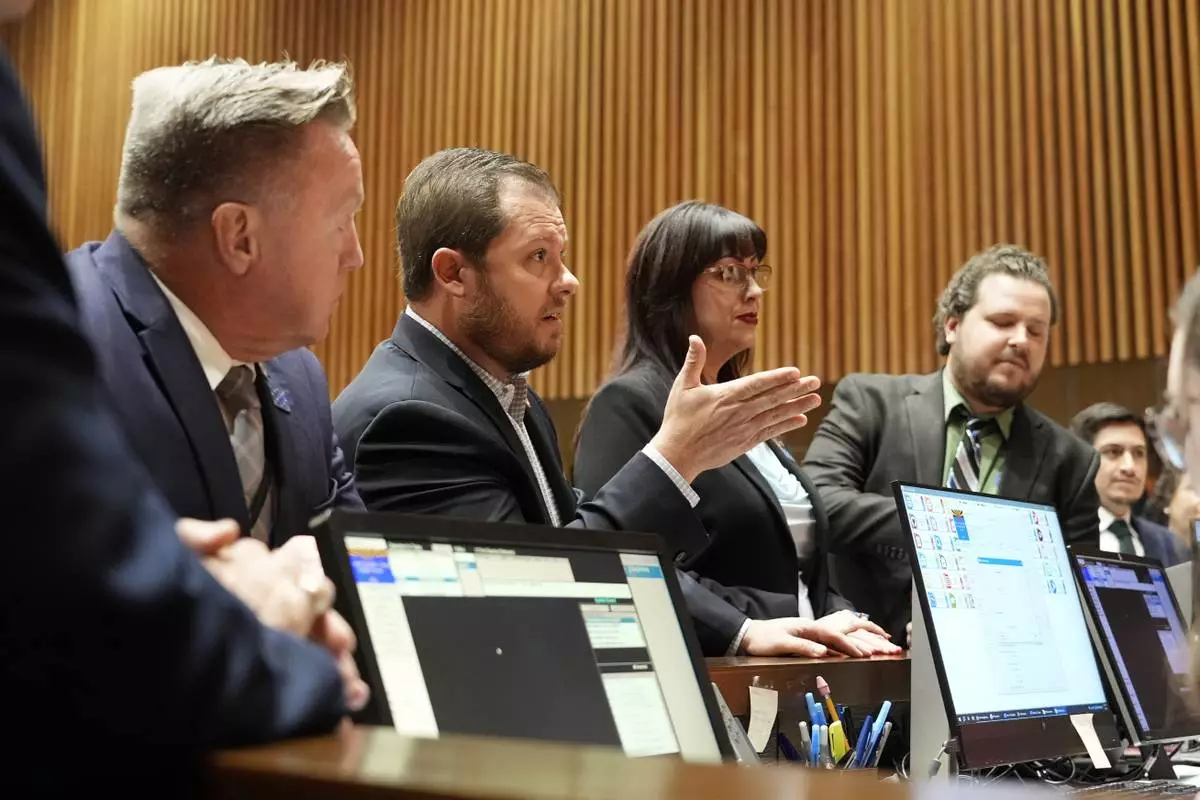
Arizona state senator Jake Hoffman, R-District 15, motions as he speaks to the Senate President, Wednesday, May 1, 2024, at the Capitol in Phoenix. (AP Photo/Matt York)
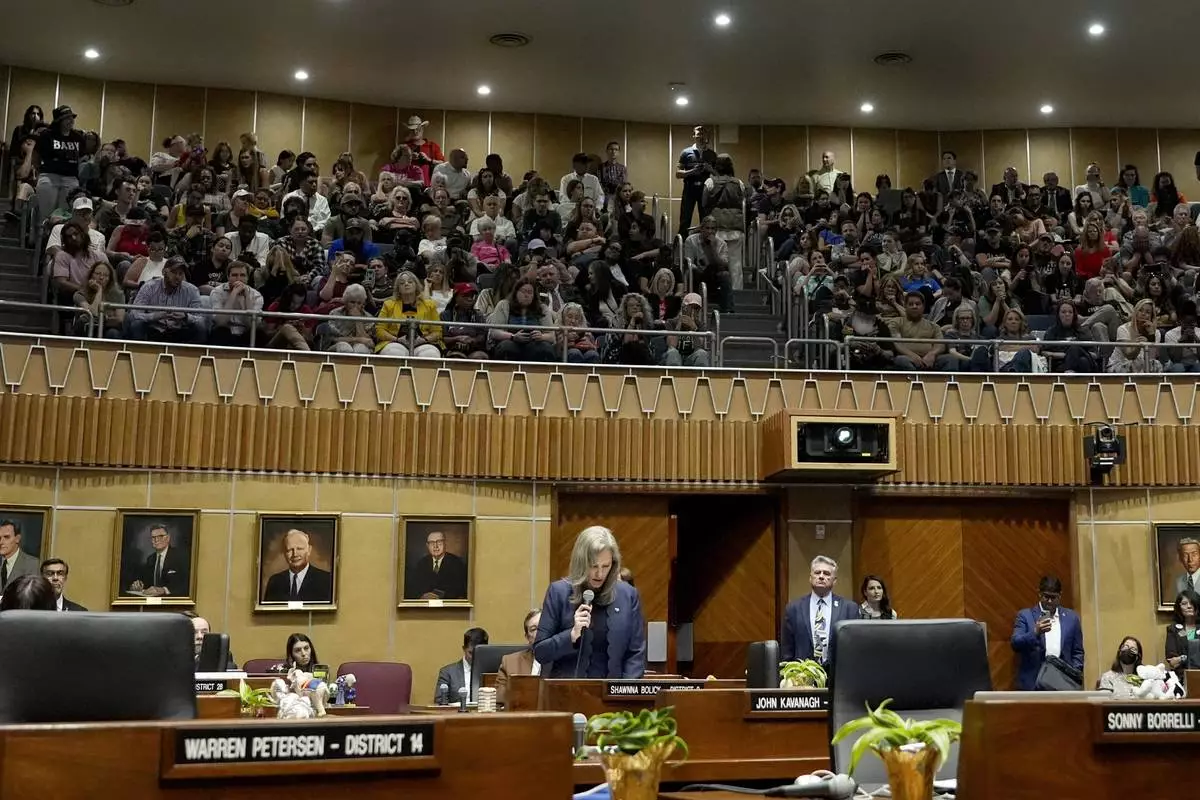
Arizona state senator Shawnna Bolick, R-District 2, speaks, Wednesday, May 1, 2024, at the Capitol in Phoenix. (AP Photo/Matt York)





















